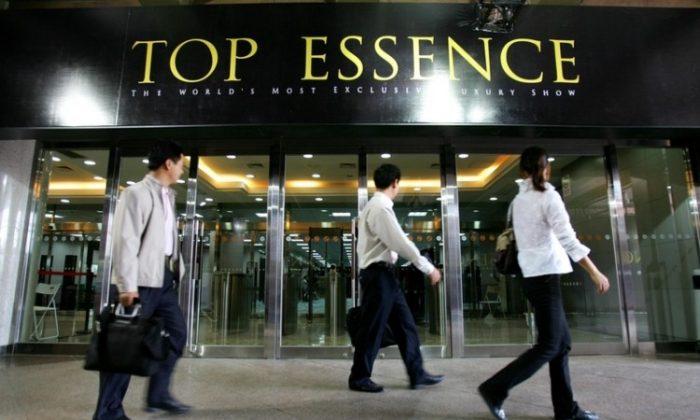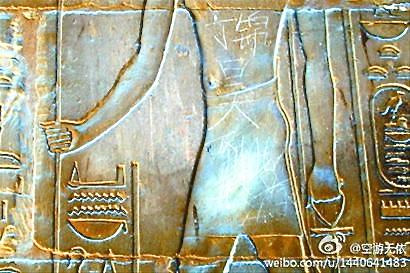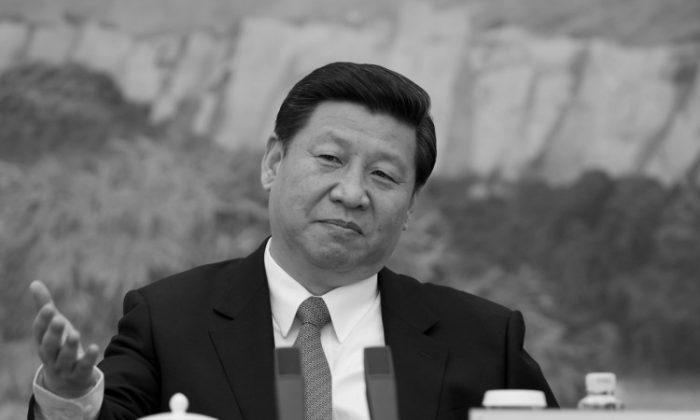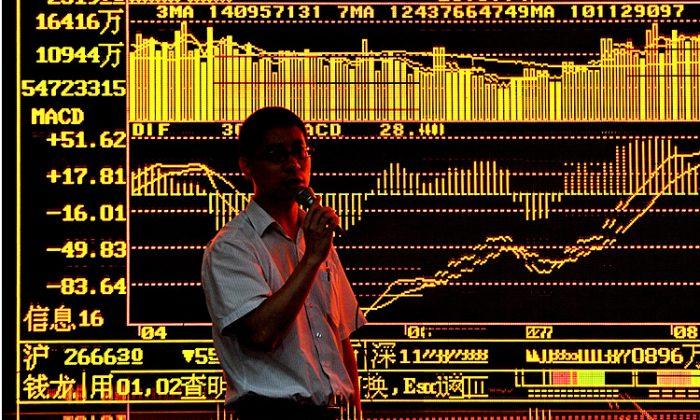China’s GDP ranks 105th in the world and according to its Ministry of Commerce, 150 million Chinese earn less that US$1 per day, the United Nations standard for poverty. Yet, China is the second largest market for luxury goods in the world.
While the luxury markets in Europe, North America, and Japan are shrinking in the global economic downturn, China’s consumption of luxury goods is on the rise, amounting to $10.7 billion or 25 percent of the global luxury market.
Wang Ning, a professor of sociology at Sun Yat-Sen University in Guangdong Province told Sound of Hope Radio that he sees China’s luxury consumption as part of a black market, because the sources of the income used for such purchases are not transparent and do not come from legal sources.
“China is still a poor country from its average income. However, its luxury consumption has become number two in the world!” he said. “This is just an indication of the polarization in the distribution of income. The wealth is in the hand of a small portion of the population. They have too much money, and then they buy luxury goods.
“In China, the luxury market is a special industry. It is actually the embodiment of social injustice and corruption,” the professor said.
Associate professor Jiang Caifen at Guangzhou University School of Economics conducted an in-depth study of luxury consumers to see who was buying luxury goods.
“According to my observations, there are three types of luxury consumers: those who became super rich super fast, social elites including those white-collar workers at foreign owned enterprises, and the government officials,” he said.
“Luxury goods have become indicators for social problems. The source of the problem is not the luxury goods, but the society itself,” wrote Zhou Ting, director of Luxury Goods Research Center at the University of International Business and Economy, in an article titled “Luxury Syndrome” in a recent edition of China Weekly.
“In China, there are too many people who are second-generation nouveau riche, too many people whose parents became rich through political power, too many people like Guo Meimei [a 20-year-old who flaunted wealth that may have come from corruption in China’s Red Cross], too many people who became rich overnight through unregulated coal mining and oil drilling. All these people are eager to use luxury goods to prove their identity,” wrote Zhou.
Gifts and Bribes
A report from McKinsey & Company, a global management and consulting firm, said 50 percent of luxury goods purchased in China in 2009 were gifts.
“The popular gifts in the business world are Vacheron-Constantin watches, Louis Vuitton handbags, Ermenegildo Zegna ties, and such,” said professor Jiang in the interview with Guangzhou Daily.
“In the Chinese power cycle, one’s authority is evaluated by the gifts one receives,” the sociologist Wang told Guangzhou Daily. “Louis Vuitton is the most recognizable luxury brand in China and thus becomes the symbol of authority.”
In China, if one wants to climb the corporate ladder, one must kowtow to one’s supervisor. If one wants to do business, one must have support from state officials. Businesses bribing state officials and businesses conspiring with officials have become very common.
East China Normal University law professor Dai Keting told Oriental Outlook magazine that corrupt officials are not only the end consumers but also the driving force of luxury goods consumption in China.
In recent years, many reports about corrupt officials have listed the luxury brands they have received as bribes. A reporter from Legal Evening News did a survey of 100 local bribery cases between 2005 and 2007 and found that small luxury goods, followed by cars and houses, are among the most popular bribes.
In 2008, the former Director of Fushun City’s Land Planning Bureau Jiang Runli was charged with corruption. It was discovered that 55-year-old Jiang owned six different pieces of real estate, 253 different luxury handbags, 1,246 items of designer clothing, over 600 pieces of jewelry, and 48 luxury watches.
Peer Pressure
More young Chinese are also joining the luxury consumers, 73 percent are younger than 45 years of age, and 45 percent are between 18 and 34 years of age. In Japan and England, the percentages of those between 18 and 34 are 37 and 28 respectively.
Hong Kong newspaper Ta Kung Pao reported on Aug. 24 that young people who were born after 1990 and even 2000 are purchasing luxury goods. They are from all walks of life and not necessarily from the very rich. For many of them, owning luxury goods is a psychological relief from peer pressure.
Economist Yue Zheng from accounting firm Price Waterhouse Coopers said there are two differences between Chinese consumers and foreign consumers. The first difference is the age. In China, most of the luxury consumers are under 40; while in developed countries, they are between 40 and 70.
The second difference is that the smaller items, such as apparel, perfume, and watches, are more popular in China. This shows that on the one hand, China is not wealthy enough and on the other hand, because of the peer pressure, people feel forced to buy luxury goods.
The Ta Kung Pao report gave an example of a 14-year-old middle school girl in Fuzhou City in the eastern province of Fujian asking her mother for one more pair of Nike or Adidas shoes—which are considered luxurious products in China. The reason? Because “everyone is wearing them.” Although she lives in a second-tier city, the girl knows many luxury brands by heart, such as Louis Vuitton, Gucci, Givenchy, and Sisley.
A Nov. 2 report by china.com.cn, a news outlet of China’s state council, said Zhu, who has been living in Hangzhou City for five years, is in mid-level management at an IT company in Hangzhou. She makes 8,000 yuan ($1,260) per month and spends most of her money on luxury handbags, even though her family suggests that she save money for a house and marriage.
But Zhu just can’t stop buying handbags. She already has a dozen handbags with brands like Louis Vuitton, Gucci, and Chanel. “All my female coworkers have branded bags. My subordinate who only makes 4,000 yuan per month is carrying a purse, which is more expensive than mine. She has to really save money to afford it,” Zhu said.
World Luxury Association China representative Ouyang Kun said it is not healthy that the luxury consumers are getting younger and the desire to show off is getting stronger.







Friends Read Free